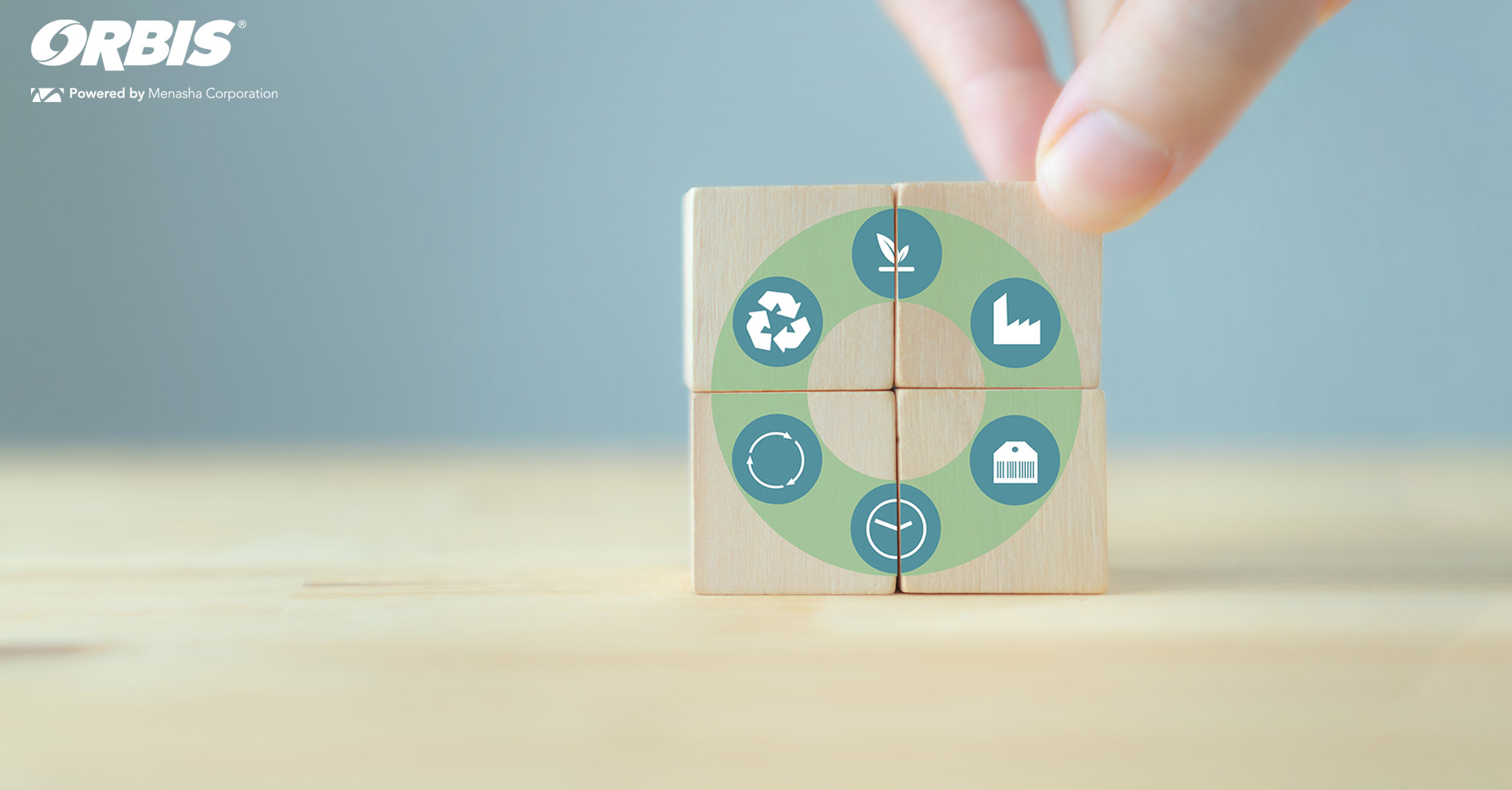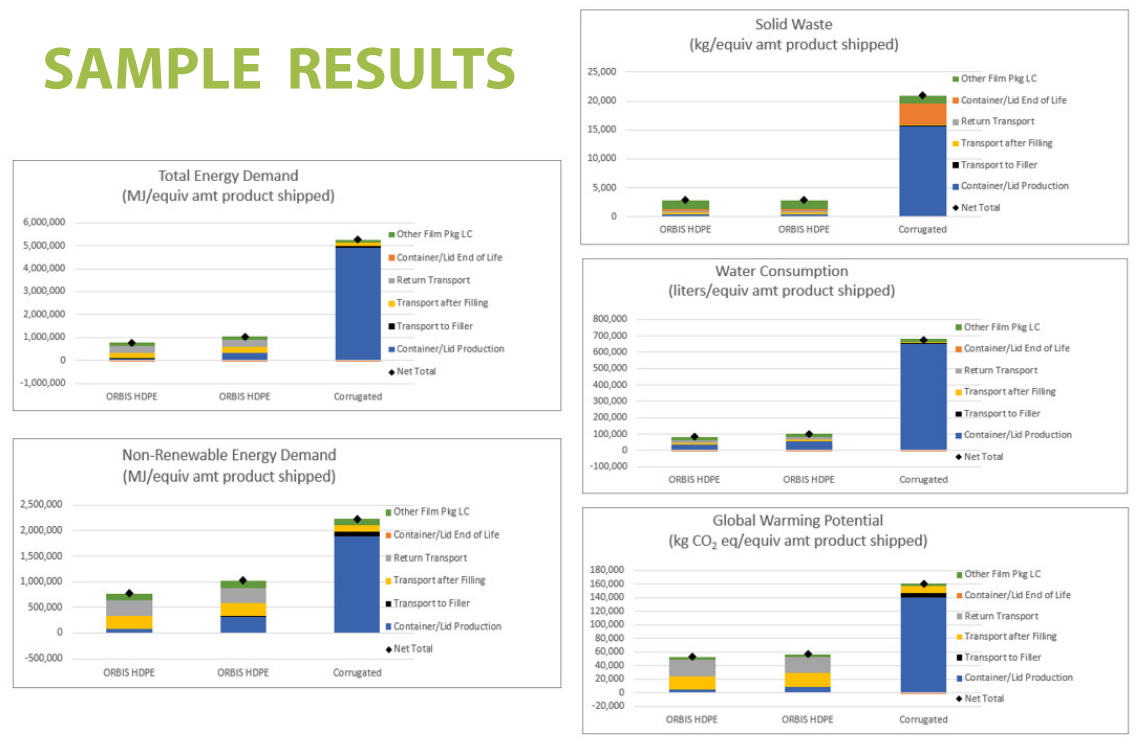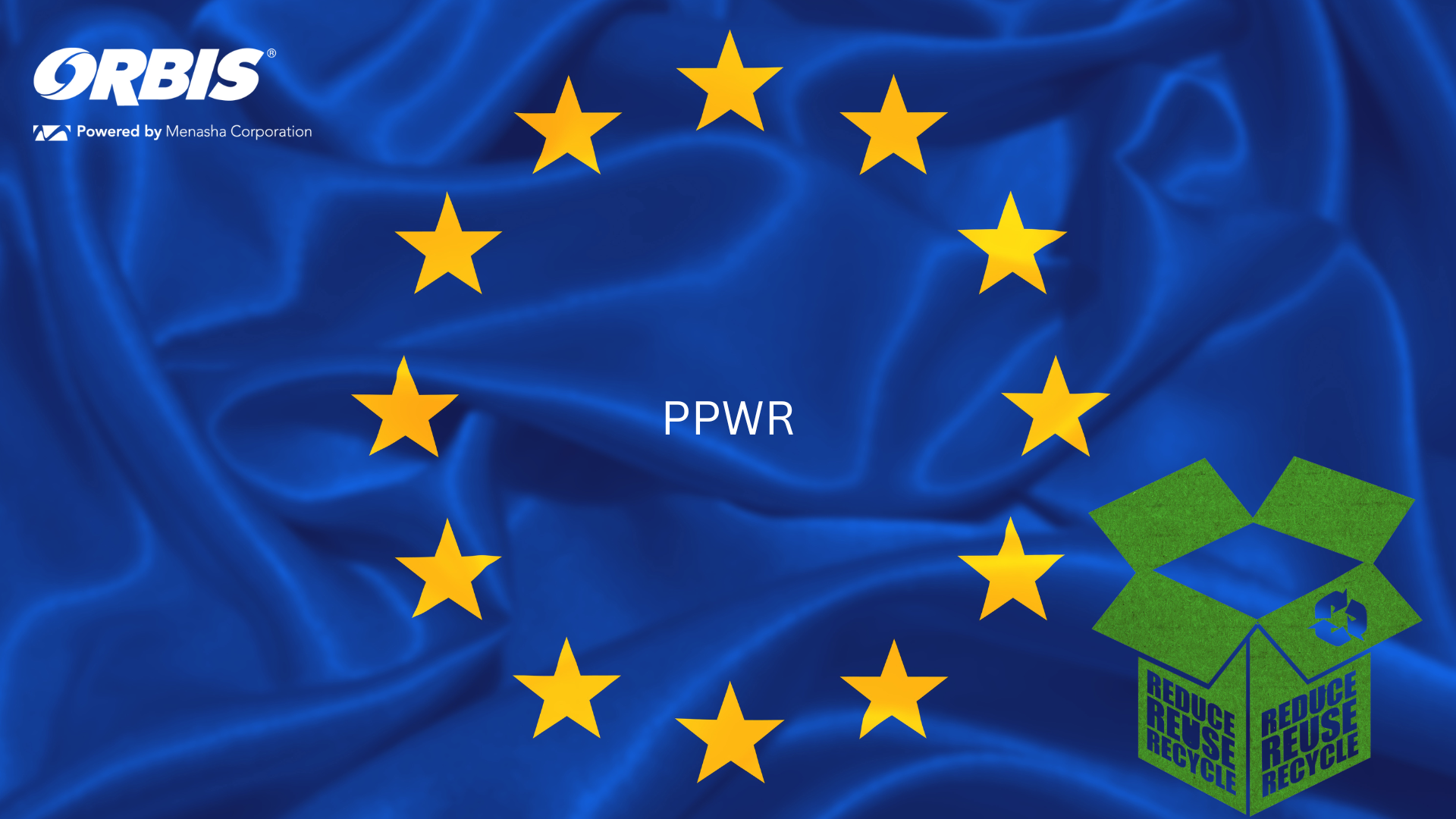
11 Sep Comparing Single-Use and Reusable Packaging
COMPARING SINGLE-USE AND REUSABLE PACKAGING
Packaging Life Cycle Assessments

Environmental concerns are paramount for companies today. When used in the right application, packaging solutions enable companies to reduce the environmental footprint of their supply chains while realising economic benefits. That is why the choice between different packaging types and materials has become a critical decision for businesses seeking to build more sustainable supply chains.
To make informed decisions and compare the impact of single-use and reusable packaging, companies can turn to packaging life cycle assessments (“PLCA”). PLCA is a comprehensive methodology that evaluates the environmental impact of a product or process across its entire lifecycle. Let’s explore how the concept of life cycle assessments aligns with today’s sustainability initiatives.
Understanding Life Cycle Assessments (“LCA”)
A life cycle assessment is a systematic approach used to quantify and evaluate the environmental impacts of a product, process, or activity through every phase of its life. It considers various stages, including natural resource extraction, manufacturing, transportation, usage, and end-of-life disposal. LCAs aim to provide a holistic perspective on environmental effects by considering factors such as resource consumption, greenhouse gas emissions, water usage, and waste generation.

How ORBIS is calculating environmental impacts
ORBIS offers packaging life-cycle assessments (PLCAs) that utilise data-driven options to help customers evaluate the benefits of switching to reusable packaging. Using the ORBIS PLCA tool, ORBIS product managers analyse their customers’ systems, design a solution and execute a reusable packaging program to meet and exceed their sustainability goals.
“By understanding the environmental impact of their choices, our customers can reduce their footprint and make a positive impact on the world. We believe that this PLCA tool will be a game-changer for companies looking to improve their bottom line and sustainability metrics.”, says Thomas Estock, Director of Sustainability at ORBIS Corporation. The PLCAs provide companies with the data needed to understand, document and improve upon their sustainability initiatives, including their environmental impacts, such as greenhouse gas emissions, water usage, solid waste and energy usage.
“By understanding the environmental impact of their choices, our customers can reduce their footprint and make a positive impact on the world.”
Thomas Estock, Director of Sustainability, ORBIS Corporation
Following the ISO LCA Methodology
The International Organization for Standardization (ISO) has established a standardised framework for conducting life cycle assessments. In combination with life-cycle data provided by a third-party LCA research firm, the ORBIS tool uses ISO LCA methodology to model all life-cycle steps from raw material extraction, packaging manufacturing, use, and end-of-life management.
In accordance with this methodology, ORBIS follows a simple three-step process: Relevant data will be collected and entered. Based on the inputs (raw materials, energy, water, etc.), the calculator generates and visualises the relevant outputs (e.g. greenhouse gas emissions, water consumption, energy consumption and waste). An ORBIS product manager will explain and interpret the results in person or virtually.
The Benefits of Packaging Life Cycle Assessments
- Easy process with clear, concise and sharable results
- Simple inputs include product weight, trip distance, trip number, etc.
- Provides data that can be used in sustainability scorecards
- Assessments are customised and calculations are specific to your unique application
- Recognises all standard packaging manufacturing processes
- Utilises ISO certified life-cycle data, provided by a 3rd party LCA research firm

Sustainability in Modern Supply Chains
The adoption of life cycle assessments in supply chain decision-making aligns well with the growing sustainability trend. Here’s how:
1. Holistic Approach: LCAs consider the complete lifecycle of products, revealing environmental impacts that might not be immediately apparent. This allows businesses to make more informed choices by considering the broader implications of their decisions.
2. Environmental Implications: By comparing the environmental impact of single-use and reusable packaging, companies can identify the best option for their application. A data-driven approach helps in designing and implementing more sustainable packaging strategies.

3. Consumer Preferences: 90% of consumers want companies to do more than turn a profit. The more environmentally conscious consumers are inclined to support brands that prioritise sustainability.
4. Regulatory Compliance: Many regions are implementing stricter environmental regulations. LCAs help companies understand the potential environmental consequences of their choices, supporting their compliance and risk management initiatives.
5. Innovation and improvement: LCAs can reveal areas with opportunities for improvement – in terms of resource efficiency, energy usage, and waste reduction. This drives innovation and encourages more sustainable practices.
Life cycle assessments are a powerful tool for businesses to compare the environmental impacts of different packaging options. As the world moves towards more responsible consumption and production patterns, integrating LCAs into decision-making processes is a significant step towards a more sustainable future.
We are here to help you evaluate the impact that reusable packaging has on the environment!
Contact
+49 2233 619 2072



